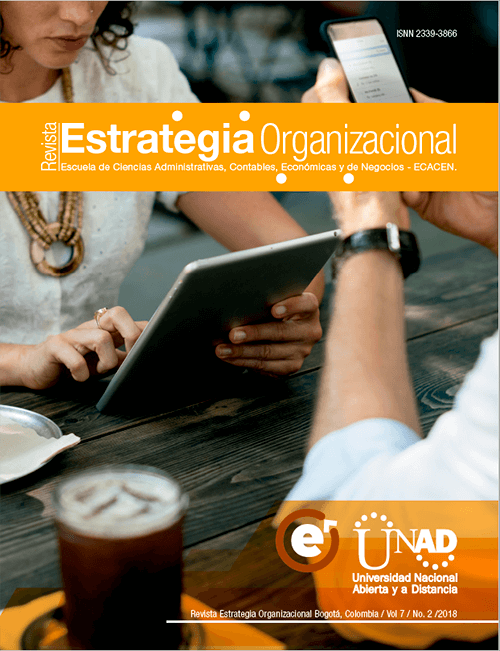Revista
La revista proporciona acceso abierto inmediato a su contenido, basado en el principio de ofrecer al público un acceso libre a las investigaciones y colaborar a un mayor intercambio global de conocimiento.
Por tanto se acoge a la Licencia Creative Commons 4.0 Atribuciones Reconocimiento – NoComercial – CompartirIgual (by-nc-sa): No se permite un uso comercial de la obra original ni de las posibles obras derivadas, la distribución de las cuales se debe hacer con una licencia igual a la que regula la obra original. Para ver más dirigirse a: http://creativecommons.org/licenses/by-nc-sa/4.0/
La revista permite el autoarchivo después de publicado con la versión editada por la revista tanto en Web personales como repositorios institucionales y de área de conocimiento, siempre y cuando se realice la cita directa a la revista y se de el URL que dirige al artículo en el espacio Web de la revista. No solicita ningún tipo de embargo de los contenidos gestionados.
Para toda gestión la Revista Estrategia Organizacional se acoje al Código de Conducta COPE para Editores de Revistas y algunas Directrices sobre las Mejores Prácticas de COPE. Se recomienda leer el Código de ética en la sección sobre la revista. (Ver código)
Autor
Los contenidos de los artículos deben ser inéditos, no deben estar en evaluación en otra institución, el contenido no puede ser enajenado de terceros, no deben tener limitación legal o contractual que le prohiba autorizar su publicación en acceso abierto y medio impreso o digital.
La consecución de derechos de reproducción de todo el material gráfico es responsabilidad de los autores. Por ello, deben enviar las autorizaciones para la publicación y uso de ese material
Cada autor debe firmar la Carta de Cesión de Derechos a favor de la Universidad Nacional Abierta y A Distancia (UNAD) y la Revista Estrategia Organizacional.
Los autores de los artículos seleccionados para publicación deben leer y conocer el código de ética de la revista. En todos los casos el Editor y Comité editorial declaran que las opiniones expuestas son exclusividad y responsabilidad de los autores.
Política de preservación
La Revista Estrategia Organizacional preserva archivos a través de los servidores de la hemeroteca de la UNAD con la plataforma OJS. Este posee la herramienta PKP PLN que permite preservar el contenido de la revista independientemente de donde se encuentre alojado. Gracias a la Red privada de LOCKSS. Se puede ampliar la información en: https://pkp.sfu.ca/2016/08/08/pkp-lockss-pln-update
Adicionalmente, la revista cuenta con protocolos de interoperabilidad OAI-PMH: Open Archives Initiative-Protocol for Metadata Harvesting. Los detalles pueden consultarse en el siguiente link: https://hemeroteca.unad.edu.co/index.php/revista-estrategica-organizacio/oai.





